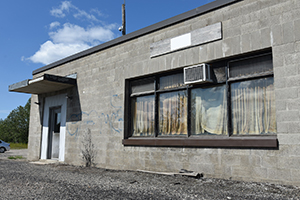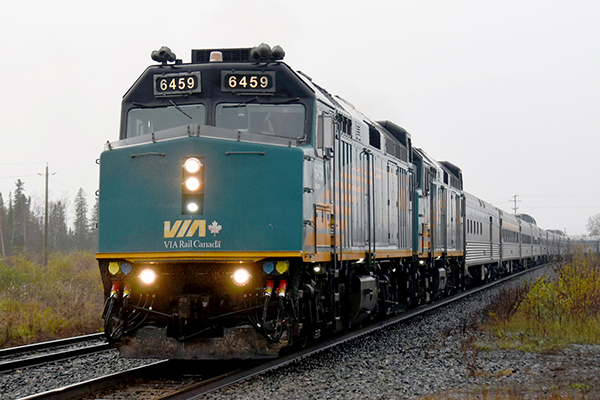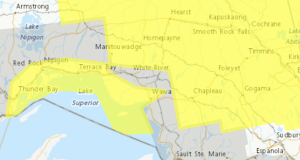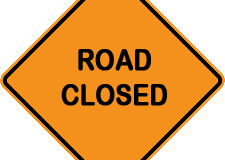Ever been stood up one too many times by a friend or a date? Feel like they’re just not getting the message that your needs aren’t being met?
This regrettably summarizes the experience of travelling aboard VIA Rail in Northern Ontario.
Between closed stations, chronically late trains and nearly no integration with local or regional transit providers, rail service in this region has become broken and dysfunctional.
 Recently on one of my return trips home from Thunder Bay, my partner and I drove three and a half hours ― some 300 km ― to the nearest station (Longlac) so that I could catch the train.
Recently on one of my return trips home from Thunder Bay, my partner and I drove three and a half hours ― some 300 km ― to the nearest station (Longlac) so that I could catch the train.
We do this because neither the Canadian nor the Sudbury-White River trains directly serve this rail-accessible city of 108,000 ― the largest in the northwest. There are also no practical rail-bus connections.
Scheduled for 14:11, we ended up waiting five hours for its eventual arrival. At one point, I recommended that my girlfriend drive back home before it got dark.
The indoor waiting facilities at Longlac have been closed for more than a decade. The signage, long faded.
There are no washrooms or benches to speak of. Instead, ticket holders wait outside; exposed to the elements and sounds of mosquitoes buzzing, while sitting on concrete slabs.
The Canadian’s on-time performance didn’t improve once I finally boarded. Engineers eventually ran out of hours they could legally work just before Hornepayne, so passengers waited another hour for the arrival of a replacement crew.
The delays ― usually freight train related ― aren’t necessarily VIA’s fault. The company, unlike its American counterpart Amtrak, doesn’t have priority on railway tracks it doesn’t own.
However, VIA no longer compensates remote service passengers with travel credits in the event of significant delays. They are offered exclusively to passengers within the Québec-Windsor corridor.
These days, the Canadian’s “schedule” should be considered as a suggestion rather than a reliable timetable. Real world travellers can’t depend on it to arrive on time.
These issues were supposed to be resolved when the train’s schedule was lengthened in 2008, again in 2018, and when the frequency was reduced from three to two days a week.
Federal Transport Minister (Pablo) Rodriguez, we need to talk.
VIA Rail may very well be an independent Crown Corporation, but this is no way to operate a public transportation service.
A report co-produced by Metrolinx and Ontario Northland demonstrates a genuine need for alternatives to road-based travel in the region. The province acknowledges:
- Intercity bus, rail and air services are limited
- Highway 11 north of North Bay is susceptible to road closures, with few, if any, alternative routes available for detours
- Air service in the North has reduced greatly and may never return to pre-COVID service levels
- A passenger rail service would provide significant value
Ontario intends to reinstate the Northlander train by 2026. An order for new rolling stock has been placed, and accessible, climate controlled shelters ― equipped with Wi-Fi ― will be constructed in small and mid-sized communities on route.
The Government of Canada says it’s replacing VIA’s long distance fleet beginning in 2030. However, none of the aforementioned issues raised in this column have been addressed.
Travel in Northern Ontario remains difficult and can be prohibitively expensive ― as evidenced by the athletes who withdrew from the Ontario Winter Games in Thunder Bay due to the high cost of air travel.
It seems disingenuous for VIA Rail to solicit questions, only to avoid answering ones specific to the North during their annual public meeting.
Much like when the Harper regime cancelled the Algoma Central service, federal policies are drafted with little consideration of the travelling public.
Canadian passenger rail has good qualities: affordability, comfort, space for legs and luggage, and friendly staff eager to make train travel a pleasant experience.
The act of connecting Northerners between smaller towns to larger cities ― like Thunder Bay ― shouldn’t be so complicated.
The Trudeau government is missing the mark, and can do better.
SOURCE: Éric Boutilier, Northern Tracks Blog
- Thrift Shop Thanks the Community - February 24, 2026
- Bus Cancellations (Wawa, White River & Dubreuilville) - February 24, 2026
- Chiefs of Ontario Urges Immediate Action on Highway Safety After String of Fatal Collisions - February 23, 2026
 Wawa-news.com Local and Regional News
Wawa-news.com Local and Regional News


